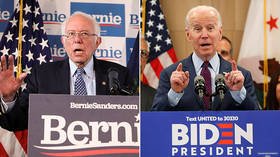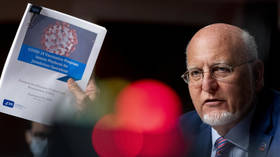Joe Biden is more Trump than you know, particularly when it comes to China

Joe Biden may become a genuine contender to take on Trump’s presidency. But despite the media’s excitement, Biden is unlikely to approach important foreign policy decisions differently to Trump, especially when it comes to China.
With more and more videos emerging of surging Democratic candidate Joe Biden talking brazenly (and quite disrespectfully) to constituents in a Trump-esque fashion, I can’t say I’m too surprised to learn that his foreign policy positions are not so different from Donald Trump’s in a number of ways either. This is notably true with regards to China, in a media age where the coronavirus continues to dominate international media headlines.
As the Super Tuesday II results continue to show Biden taking control of the Democrats’ political situation, leaving Bernie Sanders in a cloud of mystery wondering what could possibly have gone wrong, putting Biden’s policy positions under the microscope is needed now more than ever.
In the most recent presidential primary debate of the Democratic Party at the end of February, Biden shared with us his true thoughts regarding China, particularly under the leadership of Xi Jinping. Xi is a “thug”, said Biden, who “has a million Uighurs” in “concentration camps.” He also blasted Xi’s response to the protests rocking Hong Kong, before accusing Xi of not having a democratic bone in his body.
Biden has also talked about moving 60 percent of Washington’s naval power to the Western Pacific, and I’m guessing they won’t be there merely to sightsee. His jingoistic rhetoric has seen him heavily criticize China’s New Silk Road project, hiding behind the excuse that China’s ambitious vision will result in endless environmental harm. I find it hard to believe that the former second-in-command – potentially soon to be commander-in-chief – of one the world’s worst polluting entities genuinely cares about anyone's environmental impact.
If elected president, though, Biden has vowed to “rally a united front of nations to hold China accountable” on this issue. If you look closely, this probably has less to do with climate change and more to do with the recent formation of the US International Development Finance Corporation (DFC), which exists solely to tackle China’s New Silk Road project.
As far as the coronavirus is concerned, he also recently went so far as to suggest he could force China to cooperate with an international investigation. His talk is tough, and I’d bet it’s not just to score points in presidential debates.
Also on rt.com Not feelin’ the Bern? Biden scores more states in latest primaries – but Sanders is still in the battleBiden’s flip-flop on China
I can’t help but notice that Biden didn’t always feel this way. In fact, he was intent as hell on retaining the status quo. He previously opposed legislation which would have enabled increased US-Taiwan military cooperation and arms sales and believed in engaging with China. In a 2001 op-ed in the Washington Post, Biden showed that he wasn’t a fan of Washington’s so-called “obligation” to defend Taiwan as a “policy of ambiguous strategic ambiguity.” It was only in May last year that Biden was dismissing China as a strategic threat, stating “they’re not competition for us.”
It reminds me of the time that Barack Obama challenged then Republican contender Mitt Romney on his anti-Russian views, stating that “the Cold War’s been over for 20 years.” Fast forward just a few years to Donald Trump’s election victory, and all of a sudden Obama had become one of the staunchest Russophobes, driving heavily anti-Russian media narratives.
Then again, Biden was vice president to Barack Obama, who was the one to set in motion the “pivot to Asia” strategy. Under Obama, we saw viscerally anti-Chinese moves such as the Trans-Pacific Partnership Agreement (TPP), as well as the active containment of China in the Asia-Pacific region. It certainly makes sense that the next stage of Washington’s foreign policy strategy is a more direct approach to dealing with Beijing, which is likely to have taken place whether Donald Trump was in office or not. In fact, I can recall a time where Biden challenged Xi’s ‘no-fly zone’ by threatening to fly B-1 bombers directly through it. I could be wrong, but the B-1 bomber was originally designed to be nuclear-capable.
Biden v Sanders – who is right on China?
We already know that Biden has had a role as one of the leading masterminds behind some of the most egregious war crimes the US has ever taken part in. We know he has escalated the anti-Russian narratives, portraying himself as a victim of a Russian bot operation. We also know he likely won’t work wonders as far as US adversaries such as North Korea, Iran, or Venezuela are concerned.
While I can’t imagine Bernie Sanders being willing (or even able) to change the US foreign policy perspective on countries such as Venezuela, he does appear to have a starkly different approach to China than Biden or Trump. If we were to accept the Sanders model, the “threat” that Beijing posed to the US would be framed with a greater focus on putting American workers at the forefront of both his domestic and foreign policy.
The above notwithstanding, the “threat” that China poses to America’s economic interests will continue to exist, regardless of who is president. Biden’s documented switch from viewing China as a non-threat to now viewing it as a genuine problem in need of containment suggests that if Biden takes the throne from under Trump, not much will change in respect of the US’ relationship with China.
Think your friends would be interested? Share this story!
The statements, views and opinions expressed in this column are solely those of the author and do not necessarily represent those of RT.
















